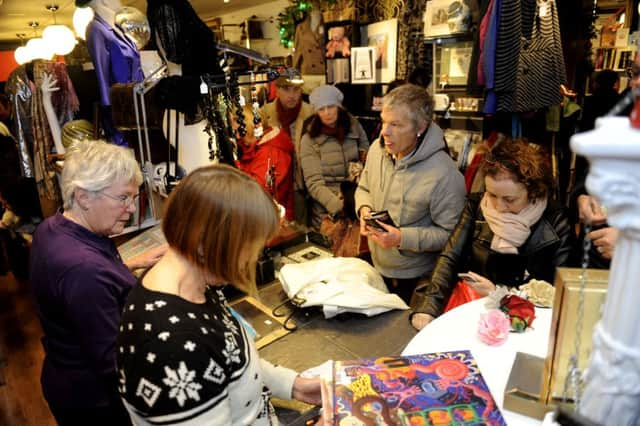Mike Taylor: Good intentions risk going to waste


Most of us are aware of the financial benefits to good causes that come from donating our unwanted items to charity shops such as British Heart Foundation (BHF) Scotland. In our case, your donated clothes, furniture and electricals are helping to fund 117 heart research projects across Scottish universities, research that’s finding new diagnoses and treatments for heart disease.
What’s perhaps less well appreciated are the environmental and social benefits of a reuse and recycling business model such as this. And yet we’re being penalised for providing this service, as charities often have to pay local authorities to dispose of the items we’re unable to sell.
Advertisement
Hide AdAdvertisement
Hide AdEvery year, millions of household items that would otherwise clutter up our garages and homes, or be thrown away, are turned into life-saving heart research in labs and hospitals, and care and support for heart patients. We estimate we reuse 8,000 to 10,000 tonnes of goods a year in Scotland, ranging from sweaters to sofas and books to beds.
The benefits of charities diverting items from landfill were highlighted on BBC’s The One Show on 14 October. There are huge opportunities to encourage households to divert more items to charities, particularly around bulky goods that local authorities often charge householders to remove and dispose of.
The items the Scottish public donated to our 14 large furniture and electrical shops in the past 12 months were valued at £6m and contribute to the £58m that the BHF is currently spending on heart research in Scotland. We sold over 5,000 televisions, 7,000 beds and 13,000 sofas and suites in the past year. That’s 25,000 items that would otherwise have gone to landfill at great expense for local authorities, not just in disposal costs but the cost of transportation too.
We’re proud to say that we’re finding a home for 85 per cent of the household items donated to us – not everything we collect works, is in a saleable condition or passes our safety tests. Alongside other charities offering similar collection services, BHF Scotland could reuse many more with the right level of support and promotion.
The more local authorities can promote this free service, ahead of the costly process of having to dispose of it themselves, the more they can save money, and we can keep items out of landfill and raise money for good causes.
However, council tipping charges are a major barrier to charities increasing our reuse and recycle service. Such charges are unfair and counter-productive.
If the charities concerned had not collected these items, all would have gone into landfill, with no revenue to the local authority. Instead we manage to convert and reuse the majority but are then penalised when we dispose of the unsellable.
This is a good example of where a joined-up approach between the various parties can create a real step change in the volume we can reuse in Scotland by thousands more tonnes a year and benefit the community through the money raised and by giving thousands of customers the opportunity to buy great-quality “pre-loved” items.
Advertisement
Hide AdAdvertisement
Hide AdYou can help make a difference by writing to your local authority, asking them what their policy is, and urging them to bin waste tipping charges to charities.
You can book a free collection of your unwanted things. Visit bhf.org.uk/shop
• Mike Taylor is the BHF’s retail director and has 30 years’ experience in retailing. The BHF has more than 700 stores across the UK.